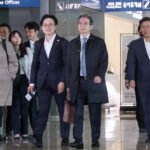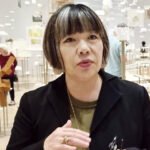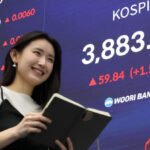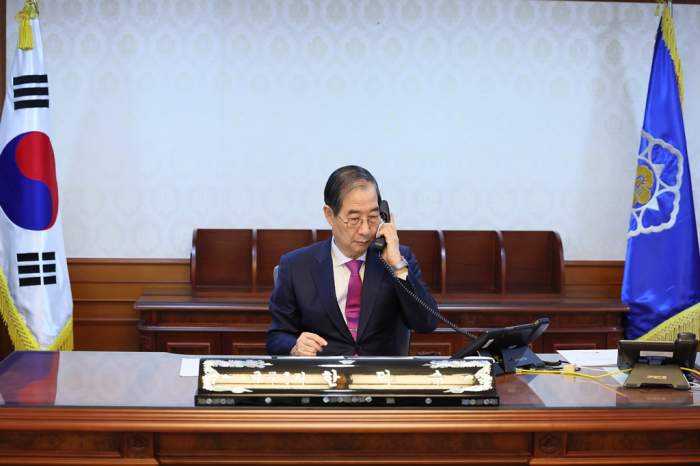
South Korea’s acting President and Prime Minister Han Duck-soo spoke with US President Donald Trump on Tuesday to discuss various issues of mutual concern.
In his first direct communication with Seoul since returning to the White House, Trump reasserted his transactional approach to foreign policy, calling for allies such as South Korea and Japan to be prioritized in ongoing trade negotiations.
Their conversation came four days after Korea’s Constitutional Court removed President Yoon Suk Yeol from office over his short-lived martial law imposition in December.
The 28-minute Trump-Han conversation underscores both the rekindling of bilateral dialogue and the potential for renewed tensions over cost-sharing and trade imbalances, analysts said.
‘GREAT CALL’
In a social media post following the call, Trump said he had “a great call,” noting that topics included Korea’s “tremendous and unsustainable” trade surplus, tariffs, LNG purchases from the US, joint investments in the Alaska pipeline project and US defense expenditures on the Korean peninsula.
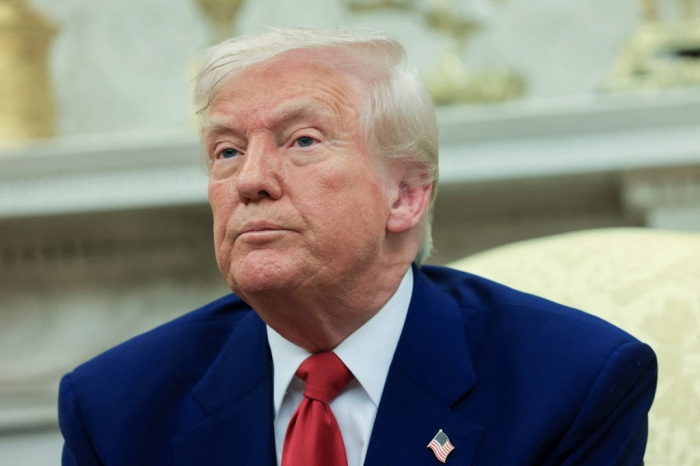
Trump signaled a renewed push to renegotiate Seoul’s contributions to the cost of stationing US troops in South Korea. “They began these payments during my first term, billions of dollars, Trump wrote, blaming his predecessor Joe Biden for what he called the “shocking” reversal of those deals.
In 2024, Washington and Seoul signed an agreement to raise South Korea’s annual defense cost-sharing contribution by 8.3% to 1.52 trillion won ($1.03 billion) from 2026, with annual increases through 2030 pegged to inflation. Trump’s latest comments suggest the White House may seek to revisit that deal, potentially setting up another bruising round of talks.
The conversation comes just hours before the US is scheduled to activate a new round of reciprocal tariffs, raising speculation that Seoul and Washington may seek a last-minute resolution to avoid a trade conflict.
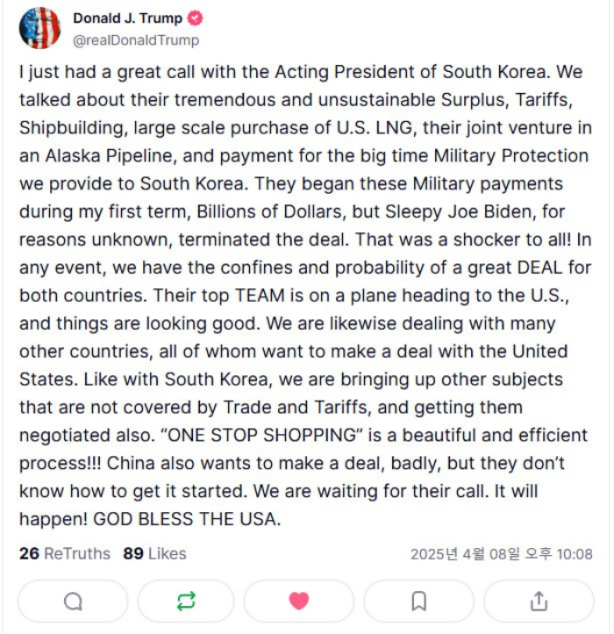
TO STRENGTHEN SEOUL-WASHINGTON TIES
According to the Korean government, Han and Trump discussed broadening cooperation in shipbuilding, liquefied natural gas and rebalancing trade.
“We hope to further strengthen the South Korea–US alliance, which underpins our diplomatic and security strategy,” Han was quoted as saying.
The acting president also urged deeper trilateral cooperation with Japan, particularly in response to North Korea’s evolving nuclear and missile threats. Both leaders pledged continued coordination on North Korea policy and reaffirmed their commitment to joint deterrence, according to Han’s office.
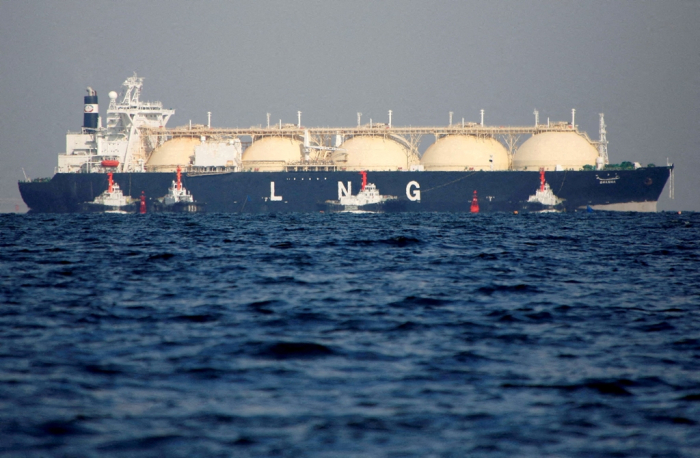
Trump’s emphasis on prioritizing allies in trade policy was echoed by Kevin Hassett, head of the White House’s National Economic Council, who told Fox News that the president had instructed his team to put “allies like South Korea and Japan first” during ongoing trade talks.
‘SEOUL WOULD NOT CONFRONT US TARIFF POLICY HEAD-ON’
But Han took a cautious tone in a separate CNN interview, indicating Seoul would not confront Washington’s tariff strategy head-on.
When asked whether South Korea would align with China and Japan to counter the US tariffs, Han replied: “That’s not the path we’re taking. We don’t believe dramatic escalation would improve the situation.”
While some see the Han-Trump contact as a thaw in bilateral relations, others warn it could foreshadow a fresh wave of demands from Washington.
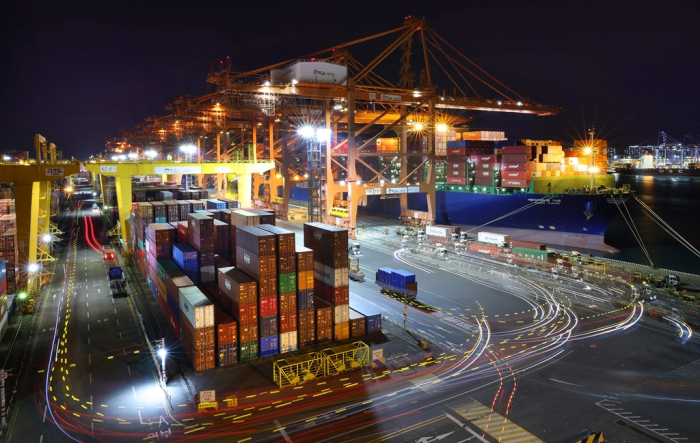
“The question now is how prepared Seoul is to respond to the Trump administration’s assertive, deal-driven diplomacy,” said a senior South Korean diplomat.
Seoul officials said the two governments have agreed to launch ministerial-level economic talks to find “win-win” solutions on trade and investment while reaffirming close coordination on security matters, particularly with regard to Pyongyang.
Still, analysts caution that Trump’s renewed focus on cost-sharing and trade deficits could inject friction into what has been a relatively stable alliance in recent years.
As one Seoul-based think-tank researcher put it: “Trump is back – and so is the bill.”
By Byung-Uk Do
dodo@hankyung.com
In-Soo Nam edited this article.

